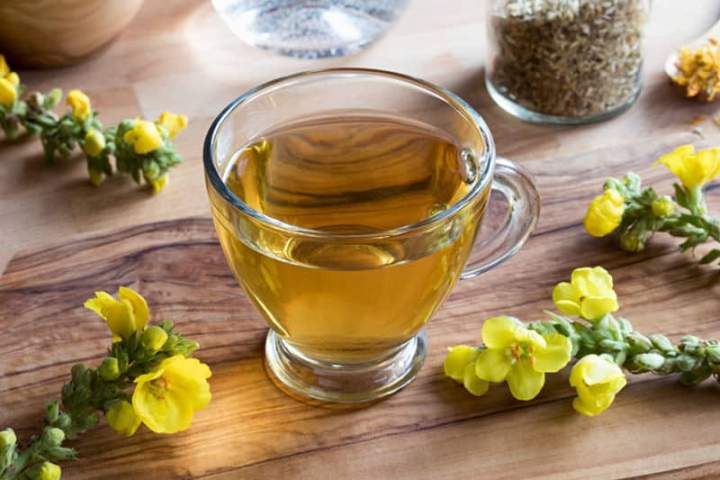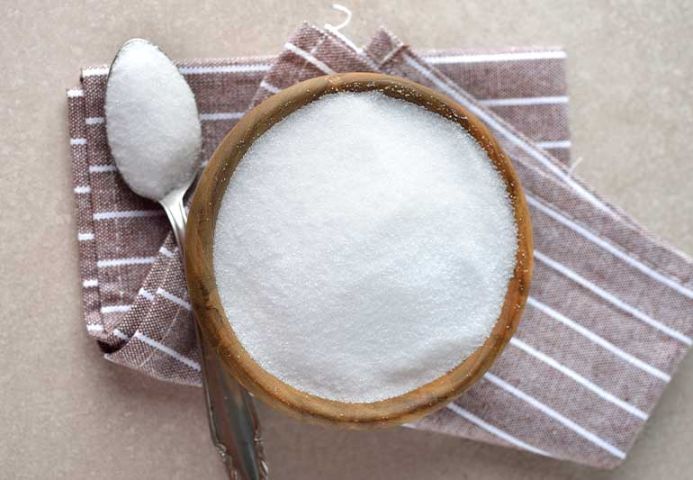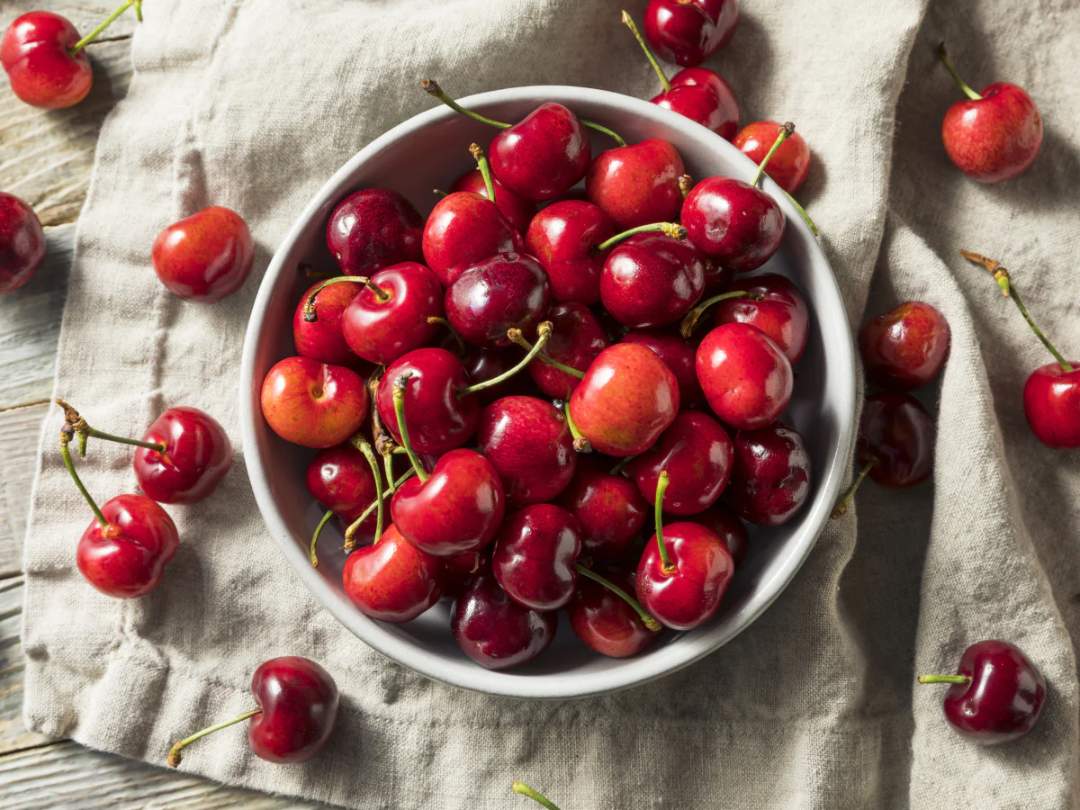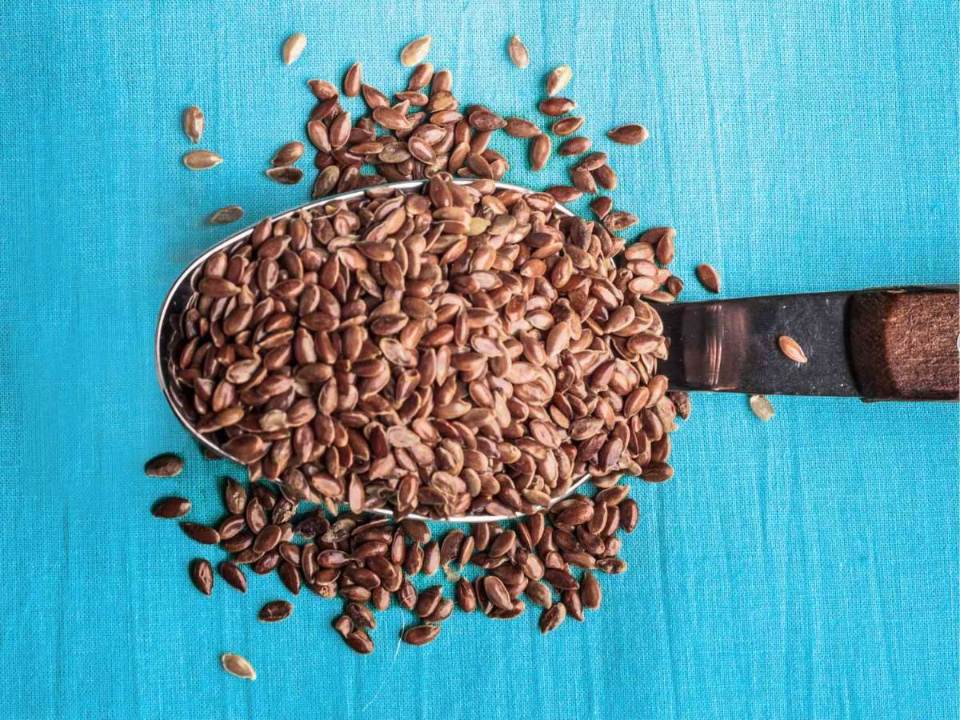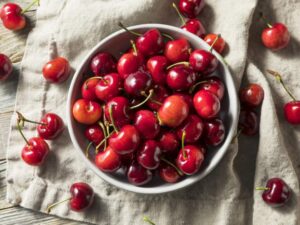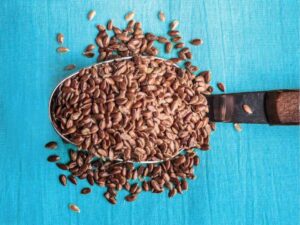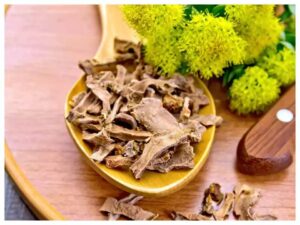The Mullein: Unraveling the Discovery of a Versatile Herb
The Mysterious Beginnings of Mullein
Mullein, also known as Verbascum thapsus, is a herb that has been used for centuries for its medicinal properties. However, the discovery of this plant and its many uses is shrouded in mystery.
According to some sources, Mullein was first discovered in Europe and Asia thousands of years ago. The ancient Greeks and Romans are believed to have used it for its healing properties. It is said that the plant was so highly regarded that the Romans referred to it as “Jupiter’s Staff” and the Greeks called it “Candlewick Plant” due to its tall, candle-like shape.
The Spread of Mullein Across the Globe
The use of Mullein eventually spread to other parts of the world. It is believed that the herb was brought to the Americas by European colonizers in the 1600s. Native American tribes quickly adopted the plant for its many uses, including as a pain reliever, anti-inflammatory, and expectorant.
Over time, Mullein became widely naturalized in North America and is now found throughout the continent. It can also be found in other parts of the world, including Asia, Africa, and Australia.
Uncovering the Medicinal Properties of Mullein
The medicinal properties of Mullein were not fully understood until much later. In the 19th century, European physicians began using the herb to treat respiratory ailments such as coughs, asthma, and bronchitis. They also used it as a sedative and pain reliever.
In the 20th century, scientific research began to uncover the many benefits of Mullein. Studies showed that the plant contains compounds that have anti-inflammatory, antimicrobial, and analgesic properties. These compounds make Mullein an effective treatment for a wide range of conditions, including ear infections, skin irritations, and digestive problems.
Mullein Today: A Popular Herbal Remedy
Today, Mullein is widely recognized as a powerful herbal remedy. It can be found in various forms, including teas, tinctures, and capsules. Many people use it to treat respiratory conditions such as coughs and bronchitis, as well as skin conditions such as eczema and psoriasis.
Despite its many benefits, Mullein remains a somewhat mysterious plant. There is still much to learn about its various uses and how it works to promote health and wellness. However, one thing is clear: Mullein is a versatile herb that has been valued by cultures around the world for centuries, and its many benefits continue to be appreciated today.
Mullein: A Plant of Many Uses
One of the most notable characteristics of Mullein is its versatility. It has been used for a wide range of purposes throughout history and continues to be valued for its many benefits today. Some of the most common uses of Mullein include:
- Respiratory Health: Mullein is known for its ability to promote respiratory health. It is often used to treat coughs, bronchitis, and asthma, as well as other respiratory conditions.
- Ear Infections: Mullein oil is a popular natural remedy for ear infections. The oil is believed to have antimicrobial properties that can help fight off infections and reduce inflammation.
- Skin Health: Mullein has anti-inflammatory properties that make it effective for treating skin irritations such as eczema and psoriasis. It can also be used as a moisturizer to hydrate dry skin.
- Digestive Health: Mullein has been used for centuries as a natural remedy for digestive issues. It is believed to have a soothing effect on the digestive system and can help relieve constipation, diarrhea, and other digestive problems.
- Pain Relief: Mullein has analgesic properties that make it effective for relieving pain. It can be used topically to treat aches and pains, or taken internally to alleviate headaches and other types of pain.
The Future of Mullein Research
Despite its many uses, there is still much to learn about Mullein and how it works to promote health and wellness. Researchers are currently studying the plant to better understand its various properties and potential applications.
One area of research that shows promise is the use of Mullein as a natural remedy for cancer. Studies have shown that certain compounds in the plant may have anti-cancer properties and could be used to develop new cancer treatments.
Other areas of research include the use of Mullein to treat inflammation, infections, and even diabetes. As more is learned about this versatile plant, it is likely that new uses and applications will continue to emerge.
Conclusion: Mullein, a Plant of Mystery and Potential
In conclusion, Mullein is a plant that has been used for centuries for its many medicinal properties. Its discovery and spread across the globe are shrouded in mystery, but its many benefits are clear. From respiratory health to pain relief, Mullein has a wide range of applications that make it a valuable herbal remedy.
As research continues, it is likely that new uses and applications for Mullein will emerge. Its potential as a natural remedy for cancer and other conditions is particularly promising, and could lead to new treatments that are more effective and less toxic than traditional cancer therapies.
Whether you are looking for a natural remedy for a specific condition or simply want to incorporate more herbs into your daily routine, Mullein is definitely worth exploring. With its many benefits and mysterious history, it is truly a plant of mystery and potential.
The Versatile Benefits of Mullein for Health and Wellness
Respiratory Health
One of the most well-known benefits of Mullein is its ability to support respiratory health. The herb has been used for centuries to treat respiratory conditions such as coughs, bronchitis, and asthma.
Mullein is believed to work by reducing inflammation and irritation in the respiratory system. It contains mucilage, a sticky substance that coats the lining of the lungs and throat, helping to soothe coughs and reduce congestion.
To use Mullein for respiratory health, it can be brewed into a tea or taken as a tincture. Some people also use Mullein oil as a natural remedy for ear infections, which can sometimes be a complication of respiratory infections.
Skin Health
In addition to its respiratory benefits, Mullein is also a popular natural remedy for skin health. It has anti-inflammatory properties that make it effective for treating skin irritations such as eczema, psoriasis, and acne.
Mullein can be used topically as a poultice or salve to soothe and hydrate the skin. It can also be brewed into a tea and applied to the skin as a toner, helping to reduce inflammation and redness.
Digestive Health
Mullein has a long history of use as a natural remedy for digestive health. It is believed to have a soothing effect on the digestive system, helping to relieve constipation, diarrhea, and other digestive issues.
The herb can be brewed into a tea or taken as a tincture to promote digestive health. Some people also use Mullein oil to relieve digestive discomfort, applying it topically to the abdomen.
Pain Relief
Mullein has analgesic properties that make it effective for relieving pain. It can be used topically to treat aches and pains, or taken internally to alleviate headaches and other types of pain.
Mullein is believed to work by reducing inflammation and promoting relaxation. It can be brewed into a tea or taken as a tincture to promote pain relief.
Anti-Inflammatory Properties
In addition to its specific benefits for respiratory, skin, digestive, and pain health, Mullein also has general anti-inflammatory properties. This makes it effective for reducing inflammation throughout the body, which can contribute to a variety of health problems.
Chronic inflammation has been linked to a range of health issues, including heart disease, diabetes, and cancer. By reducing inflammation, Mullein may help to reduce the risk of these and other chronic health conditions.
Antimicrobial Properties
Mullein also has antimicrobial properties that make it effective for fighting infections. The herb contains compounds that can kill or inhibit the growth of bacteria and viruses, making it a useful natural remedy for a variety of infectious diseases.
One study found that Mullein leaf extract had potent antimicrobial activity against a range of bacteria, including Staphylococcus aureus and Escherichia coli. This suggests that the herb may be useful for treating bacterial infections, including those that are resistant to antibiotics.
Potential Cancer-Fighting Properties
In recent years, researchers have begun to explore the potential of Mullein as a natural remedy for cancer. The herb contains compounds that have been shown to have anti-cancer properties, making it a promising area of research.
One study found that Mullein extract inhibited the growth of human prostate cancer cells in vitro. Another study showed that a compound found in Mullein, called verbascoside, had anticancer effects against breast cancer cells.
While more research is needed to fully understand the potential of Mullein as a natural remedy for cancer, these initial findings are encouraging and suggest that the herb may have a role to play in cancer prevention and treatment.
Safety Considerations
While Mullein is generally considered safe for most people, there are a few things to keep in mind when using the herb:
- Allergic Reactions: Some people may be allergic to Mullein. If you experience any symptoms of an allergic reaction, such as hives, swelling, or difficulty breathing, discontinue use and seek medical attention.
- Drug Interactions: Mullein may interact with certain medications, including blood thinners and diabetes medications. If you are taking any medications, be sure to talk to your doctor before using Mullein.
- Pregnancy and Breastfeeding: There is limited research on the safety of Mullein during pregnancy and breastfeeding. As a precaution, it is generally recommended that pregnant and breastfeeding women avoid using the herb.
Conclusion: Mullein, a Versatile Herbal Remedy
In conclusion, Mullein is a versatile herb that has been used for centuries for its many health benefits. From respiratory health to skin care and beyond, the herb has a wide range of applications that make it a valuable natural remedy.
While more research is needed to fully understand the potential of Mullein as a natural remedy for cancer and other conditions, the herb’s many benefits make it worth exploring. Whether you are looking for a natural remedy for a specific health condition or simply want to incorporate more herbs into your daily routine, Mullein is definitely worth considering.

The Nutritional Components and Core Ingredients of Mullein
Understanding the Nutritional Components of Mullein
Mullein is a plant that is rich in many important nutrients and compounds. Some of the key nutritional components of Mullein include:
- Flavonoids: Mullein is rich in flavonoids, a group of plant-based compounds that have antioxidant and anti-inflammatory properties.
- Saponins: Mullein contains saponins, which are compounds that have a wide range of health benefits. Saponins have been shown to reduce inflammation, boost the immune system, and improve cardiovascular health.
- Iridoids: Mullein also contains iridoids, which are compounds that have anti-inflammatory and antioxidant properties. Iridoids have been shown to have a protective effect on the liver and may help to prevent certain types of cancer.
- Minerals: Mullein is rich in several important minerals, including calcium, magnesium, potassium, and phosphorus. These minerals are essential for maintaining strong bones, healthy muscles, and optimal overall health.
Core Ingredients of Mullein
In addition to its many nutritional components, Mullein also contains several core ingredients that contribute to its many health benefits. Some of the most important core ingredients of Mullein include:
- Verbascoside: This compound has been shown to have antioxidant, anti-inflammatory, and anticancer properties. It is also believed to have a protective effect on the liver.
- Aucubin: Aucubin is another important compound found in Mullein. It has been shown to have anti-inflammatory, antioxidant, and antibacterial properties.
- Mucilage: Mullein contains mucilage, a sticky substance that coats the lining of the respiratory system, helping to soothe coughs and reduce inflammation.
- Essential Oils: Mullein contains several essential oils, including myristicin, which has been shown to have antimicrobial properties.
Using Mullein in Your Diet
There are many ways to incorporate Mullein into your diet to take advantage of its many health benefits. Here are a few suggestions:
- Tea: One of the simplest ways to use Mullein is to brew it into a tea. Simply steep fresh or dried Mullein leaves and flowers in hot water for several minutes, strain, and enjoy.
- Tincture: Mullein tincture can be made by soaking the herb in alcohol or vinegar for several weeks. This is a more concentrated form of the herb that can be taken in small doses.
- Oil: Mullein oil can be made by infusing the herb in oil for several weeks. The oil can then be used topically to treat skin irritations or applied to the ear as a natural remedy for ear infections.
- Poultice: A poultice can be made by crushing fresh or dried Mullein leaves and applying them directly to the skin. This is a useful method for treating skin irritations and other topical conditions.
Conclusion: Mullein, a Nutritious and Beneficial Herb
In conclusion, Mullein is a herb that is rich in many important nutrients and compounds. Its many health benefits make it a valuable natural remedy for a wide range of conditions, from respiratory health to skin care and beyond.
By understanding the nutritional components and core ingredients of Mullein, it is possible to take full advantage of the herb’s many benefits. Whether you prefer to use Mullein in a tea, tincture, oil, or poultice, there are many ways to incorporate this versatile herb into your diet and daily routine.
Methods for Consuming Mullein: From Tea to Tincture
Brewing Mullein Tea
One of the simplest and most popular ways to consume Mullein is to brew it into a tea. Here’s how to do it:
- Gather fresh or dried Mullein leaves and flowers.
- Boil water in a pot or kettle.
- Add the Mullein leaves and flowers to a teapot or tea strainer.
- Pour the boiling water over the Mullein and let steep for 5-10 minutes.
- Strain the tea and enjoy.
Mullein tea has a mild, slightly sweet flavor and can be enjoyed hot or cold. It is a popular natural remedy for respiratory health and can be consumed regularly to help support a healthy respiratory system.
Making Mullein Tincture
Another popular method for consuming Mullein is to make a tincture. A tincture is a concentrated form of the herb that is made by soaking it in alcohol or vinegar. Here’s how to make a Mullein tincture:
- Gather fresh or dried Mullein leaves and flowers.
- Chop the Mullein and add it to a jar.
- Pour alcohol or vinegar over the Mullein until it is completely covered.
- Seal the jar and shake it well.
- Store the jar in a cool, dark place for 4-6 weeks, shaking it daily.
- Strain the tincture and store it in a dark bottle.
Mullein tincture can be taken in small doses to promote respiratory health, relieve pain, and reduce inflammation. It is a more concentrated form of the herb than tea and can be more potent.
Using Mullein Oil
Mullein oil is another popular method for consuming the herb. The oil is made by infusing Mullein leaves and flowers in oil for several weeks. Here’s how to make Mullein oil:
- Gather fresh or dried Mullein leaves and flowers.
- Chop the Mullein and add it to a jar.
- Pour olive oil or another carrier oil over the Mullein until it is completely covered.
- Seal the jar and store it in a cool, dark place for 4-6 weeks, shaking it daily.
- Strain the oil and store it in a dark bottle.
Mullein oil can be applied topically to soothe skin irritations and relieve pain. It can also be used as a natural remedy for ear infections by applying it to the ear.
Applying Mullein Poultice
A poultice is a paste made from fresh or dried herbs that is applied directly to the skin. Mullein poultice can be used to relieve pain, reduce inflammation, and treat skin irritations. Here’s how to make a Mullein poultice:
- Gather fresh or dried Mullein leaves and flowers.
- Crush the Mullein to release its juices.
- Apply the Mullein directly to the affected area.
- Cover the poultice with a cloth or bandage and leave it on for several hours.
Mullein poultice can be used to treat skin irritations such as eczema, psoriasis, and rashes. It can also be used to treat wounds, bruises, and other topical conditions.
Precautions and Safety Considerations
While Mullein is generally considered safe for most people, there are a few things to keep in mind when consuming the herb. Here are some precautions and safety considerations to keep in mind:
- Allergic Reactions: Some people may be allergic to Mullein. If you experience any symptoms of an allergic reaction, such as hives, swelling, or difficulty breathing, discontinue use and seek medical attention.
- Drug Interactions: Mullein may interact with certain medications, including blood thinners and diabetes medications. If you are taking any medications, be sure to talk to your doctor before using Mullein.
- Pregnancy and Breastfeeding: There is limited research on the safety of Mullein during pregnancy and breastfeeding. As a precaution, it is generally recommended that pregnant and breastfeeding women avoid using the herb.
- Dosage: It is important to follow dosage guidelines carefully when consuming Mullein. Too much of the herb can cause side effects such as diarrhea, nausea, and vomiting.
Conclusion: Versatile and Beneficial Herb
In conclusion, Mullein is a versatile herb that can be consumed in many different ways to take advantage of its many health benefits. Whether you prefer to drink it as a tea, take it as a tincture, use it as an oil, or apply it as a poultice, there are many ways to incorporate Mullein into your daily routine.
By understanding the different methods for consuming Mullein and taking the necessary precautions and safety considerations, you can use this beneficial herb to promote respiratory health, relieve pain and inflammation, and treat a wide range of topical conditions.

Potential Side Effects and When to Avoid Taking Mullein
Introduction to Mullein Side Effects
Mullein is a popular herb that is known for its many health benefits. However, like any herb or supplement, it is important to be aware of its potential side effects and when it may not be appropriate to take.
In this article, we will explore some of the potential side effects of Mullein and when to avoid taking the herb.
Potential Side Effects of Mullein
While Mullein is generally considered safe for most people, there are some potential side effects that you should be aware of. Here are some of the most common side effects of Mullein:
- Skin Irritation: Some people may experience skin irritation or allergic reactions when using Mullein topically. If you experience any itching, redness, or swelling after applying Mullein to your skin, discontinue use and seek medical attention.
- Digestive Issues: Mullein may cause digestive issues such as nausea, vomiting, and diarrhea in some people. If you experience any of these symptoms after consuming Mullein, discontinue use and speak with your healthcare provider.
- Drug Interactions: Mullein may interact with certain medications, including blood thinners and diabetes medications. If you are taking any medications, be sure to talk to your doctor before using Mullein.
- Pregnancy and Breastfeeding: There is limited research on the safety of Mullein during pregnancy and breastfeeding. As a precaution, it is generally recommended that pregnant and breastfeeding women avoid using the herb.
- Lung Disease: While Mullein is often used to promote respiratory health, it may not be appropriate for people with certain lung conditions such as asthma or chronic obstructive pulmonary disease (COPD). If you have a lung condition, speak with your healthcare provider before using Mullein.
When to Avoid Taking Mullein
While Mullein is generally safe for most people, there are certain circumstances when it may not be appropriate to take. Here are some situations when you should avoid taking Mullein:
- Allergic Reactions: If you are allergic to Mullein or any of its components, you should avoid taking the herb.
- Surgery: Mullein may increase the risk of bleeding during surgery. If you are scheduled for surgery, it is important to stop taking Mullein at least two weeks before your procedure.
- Blood Thinners: Mullein may interact with blood thinning medications such as warfarin, increasing the risk of bleeding. If you are taking blood thinners, talk to your doctor before using Mullein.
- Diabetes Medications: Mullein may interact with diabetes medications, potentially causing a drop in blood sugar levels. If you are taking diabetes medications, talk to your doctor before using Mullein.
- Pregnancy and Breastfeeding: As previously mentioned, there is limited research on the safety of Mullein during pregnancy and breastfeeding. As a precaution, it is generally recommended that pregnant and breastfeeding women avoid using the herb.
Conclusion: Be Aware of Potential Side Effects and Risks
In conclusion, Mullein is a beneficial herb that has many potential health benefits. However, it is important to be aware of its potential side effects and when it may not be appropriate to take.
If you experience any side effects or have concerns about taking Mullein, speak with your healthcare provider. By being aware of the potential risks and taking the necessary precautions, you can use Mullein safely and effectively to promote respiratory health, relieve pain and inflammation, and treat a wide range of topical conditions.
The Drug Interactions of Mullein
Blood Thinners
Mullein may interact with blood thinning medications such as warfarin, increasing the risk of bleeding. If you are taking blood thinners, talk to your doctor before using Mullein.
Diabetes Medications
Mullein may interact with diabetes medications, potentially causing a drop in blood sugar levels. If you are taking diabetes medications, talk to your doctor before using Mullein.
Sedatives
Mullein may interact with sedatives such as benzodiazepines and barbiturates, causing excessive drowsiness and other side effects. If you are taking sedatives, talk to your doctor before using Mullein.
Immunosuppressants
Mullein may interact with immunosuppressant medications such as cyclosporine, potentially reducing the effectiveness of these medications. If you are taking immunosuppressants, talk to your doctor before using Mullein.
Hormonal Medications
Mullein may interact with hormonal medications such as birth control pills, potentially reducing their effectiveness. If you are taking hormonal medications, talk to your doctor before using Mullein.
Other Medications
In addition to the medications listed above, Mullein may also interact with other medications. If you are taking any medications, be sure to talk to your doctor before using Mullein to ensure that there are no potential interactions.
Conclusion: Be Aware of Potential Interactions
In conclusion, Mullein is a beneficial herb that has many potential health benefits. However, it is important to be aware of its potential interactions with other medications.
If you are taking any medications, be sure to talk to your doctor before using Mullein to ensure that there are no potential interactions. By being aware of the potential risks and taking the necessary precautions, you can use Mullein safely and effectively to promote respiratory health, relieve pain and inflammation, and treat a wide range of topical conditions.
